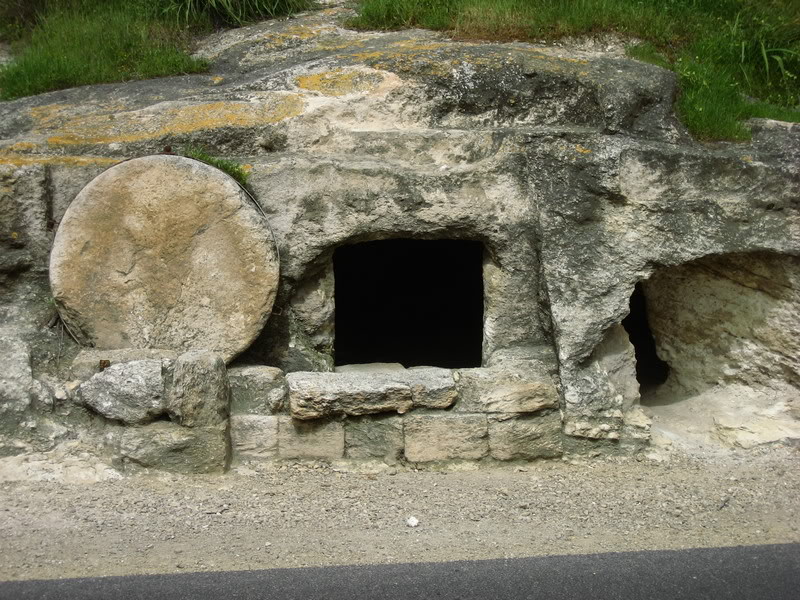Hebrew Name:
Reshit Katzir
English Name:
Firstfruits, Resurrection Sunday
Associated Scriptures:
Leviticus 23:9-14
1 Corinthians 15:20-23
First Covenant Application:
A wave offering of the firstfruits of the crops, which declares the whole field as holy to the LORD
New Covenant Application:
Jesus was resurrected (lifted up, 'waved' to the LORD) as an acceptable offering, the firstfruits from the dead, declaring those who follow after Him as holy to the LORD
Ultimate Fulfillment:
Jesus' resurrection
The Feast of Firstfruits
Levitical
Grain (Sheaf, Wave) Offering
Prophetic
John 12:23-26
Jesus replied, “The hour has come for the Son of Man to be glorified. Very truly I tell you, unless a kernel of wheat falls to the ground and dies, it remains only a single seed. But if it dies, it produces many seeds. Anyone who loves their life will lose it, while anyone who hates their life in this world will keep it for eternal life. Whoever serves me must follow me; and where I am, my servant also will be. My Father will honor the one who serves me.
1 Corinthians 15:20-23
But now Christ has been raised from the dead, the firstfruits of those who have fallen asleep. For since death came through a man, the resurrection of the dead also comes through a man. For just as in Adam all die, so also in Christ all will be made alive. But each in his own order: Christ, the firstfruits; afterward, at His coming, the people of Christ.
When viewed from a Jewish perspective in hindsight, the events of the Passion Week are amazing. Just in the schedule alone, Jesus was: chosen on the tenth day of the month; was sacrificed on Passover; and rose from the dead on the Feast of Firstfruits. Huh? I thought Jesus rose on Easter…
The Feast of Firstfruits was commanded by God in the Law of Moses found in Leviticus 23:9-14. This was the time in which the Jews were to come and offer the first sheaf of their barley harvest to the priests, who would present the sheaves to the LORD as an offering, waving or 'lifting up' the sheaf to the LORD. Firstfruits was to occur on the day after the Shabbat that fell after the Passover. So to review, on the week Jesus died and rose again, Passover started Thursday night at sundown and went till Friday night at sundown (Jesus died around 3:00 on Friday, so those who remained to bury Him had just a few hours to do so before sundown); Shabbat started Friday night at sundown and went to Saturday night at sundown; and Firstfruits began Saturday night at sundown and ended Sunday night at sundown (Jesus rose from the dead early on Sunday morning—on the third day, as He and the Scriptures predicted).
Interesting, but what does this mean? When the first sheaf of grain was accepted by the LORD, it meant that the whole harvest was holy. In the same way, as Jesus rose from the dead (He was 'lifted up'), He became an acceptable firstfruits, making those of us who follow Him in resurrection holy to the LORD. It assures us that, just as He was raised to life, we will be also. It is no wonder that, once they were enlightened by the Holy Spirit, the initial Jewish believers stood back in awe as they recounted the details. The Apostle Paul references the Feast of Firstfruits in 1 Cor. 15:20-23 listed above.
So why does the Christian Church call this day Easter? As we studied in the article about Passover, the leaders of Romanized Christianity made a decision to abandon the Jewish roots of the faith in the 300’s A.D. at the Council of Nicaea. In their arrogance, ignorance, and their hatred for the Jews, they chose to use the pagan festival of Easter (fertility moon goddess) as the main holiday for which they would celebrate both the death and resurrection of Jesus (though Good Friday had been established by this time). The calculation for the date of Easter is based on the spring equinox instead of using the Biblical computation method in the Jewish calendar to determine the date for Passover; furthermore, they decided that they should refer to Easter as a ‘Christian Passover’ on Sunday since that was the day He rose--even though the Passover is symbolic of the death of Jesus, whereas Firstfruits signifies the resurrection.
But we need to ask ourselves the question, “Why not follow the Biblical example?” The LORD said, “You must not invoke the names of other gods; they must not be heard on your lips.” (Exodus 23:13) Why would we choose to interject our own cultural context when God has provided all the evidence we need in Jesus' fulfillment of the Levitical Feasts? If God established something, who are we to change it? What could we possibly hope to gain by 'doing it our way?'
If the Constantinian Christians had understood the Jewish Feast of Firstfruits and assigned it accordingly, they would have always been able to celebrate Jesus’ resurrection on a Sunday anyway. Furthermore, the correct emphasis would be placed on His resurrection instead of having to re-invent the Passover.
Let’s return to the Biblical example and celebrate our Messiah Jesus as the Firstfruits from the dead! Hallelujah!
